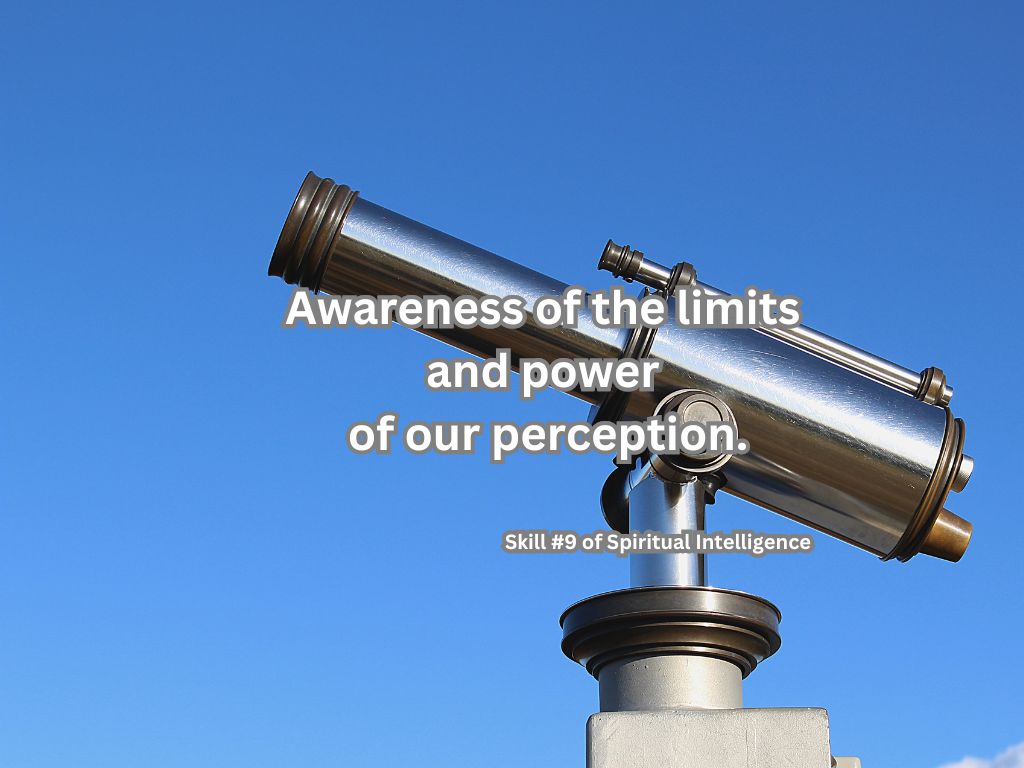Do you have an awareness of the limits and the power of your perception? Do you always trust your five senses, knowledge, or intellect to make decisions? Awareness of the limits and power of perception is Skill 9 of Spiritual Intelligence defined by Cindy Wigglesworth (Wigglesworth, 2012).
Businesses, organizations and most humans in them rely heavily on existing knowledge, information or new data to make decisions. Even with a wealth of data that supposedly informs good decision-making experiences, assumptions, opinions, and biases cause people to filter information in or out and it causes individual or organizational blindness.
We might find ourselves in trouble if we are stuck in selective attention, confirmation bias, or anchoring bias.
Selective attention is when we focus on certain aspects of our world and ignore others. For a simple example, somebody who decides they want to shop for a new red car might start seeing red cars everywhere. If you are asked to focus on a certain problem, you might miss clues about other things around you. For a fun little example take a moment to watch the video here.
https://www.youtube.com/watch?v=xNSgmm9FX2s
Confirmation bias is similar but slightly different in that people will try to seek out evidence for things they already believe and ignore or give less credence to alternate information even if it has equal validity.
Anchoring bias can lead us to hold on to the first information we see or hear and dismiss or devalue new or subsequent information.
All this leads to an imperative that we notice our perspectives, attention and our assumptions. We want to be patient and curious enough to give attention to what we might not initially notice. We also need time to go beyond our five senses to listen deeply for what else may be emerging from our higher self or a higher source.
The world is full of information, knowledge and data however this doesn’t always translate to wisdom. We need to cultivate a more holistic way of knowing to make better decisions for ourselves and others.
I appreciate Otto Scharmer’s Theory U (Scharmer, 2009) approach. He speaks about being mindful and present as a first step to creating new possibilities. We let go of our voice of judgment, our voice of cynicism and our voice of fear so we can have an open mind, an open heart and an open will. If we can get to that space we can experience ‘presencing’ which is the art of being present with each other and our Source and then sensing the future as it is emerging.
Mindfulness and meditation was often relegated to churches, yoga mats, or yurts but never in the corporate board room. People often work in high-pressure, answer-driven organizations or businesses. Answers are rewarded. Questions and open-endedness often are not.
However, we need to make more room for the questions and for listening to more than just data points. We can become adept at problem-solving if we dare to adopt a new way of being.
- A few challenges for you to just get started:
What or who is your Source? How do you listen and sense what you cannot with your five senses?
Do you know what you know?
Are you sure?
Do you know what you don’t know?
Do you trust your senses?
Have you ever struggled with an issue or problem and later suddenly had an “ah-ha” moment?
Where did that come from? Did you trust it?
Have you ever ignored inspiration and intuition and regretted it?
As a leader do you try to solve problems on your own or do you try to assemble multiple team members to share their input so you avoid perception deception? - Go play:
Dig in a sand box
Play with clay
Colour
Paint
(If you work with teams, make creative play part of your meetings on occasion)
Write with your non-dominant hand
Think of a controversial issue for which you have a strong opinion.Write five statements to defend the opposite position.

